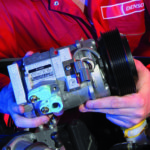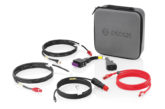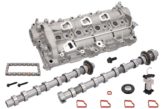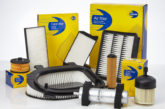DENSO explains the best practices for servicing and replacing compressors, which, in turn, could lead to a boost in revenue.
Spring is upon us and garages should be preparing themselves for the peak sales opportunities of the summer. With in-car climate control increasingly a customer expectation rather than a luxury, air conditioning offers the aftermarket a growing opportunity to maximise profits.
The first step to driving sales is ensuring motorists receive an exemplary service when it comes to the replacement or maintenance of A/C compressors. However, often a lack of knowledge means that easily remedied mistakes are costing garages sales and even customers.
Know your oil
Analysis of DENSO A/C compressor warranty claims shows that, in 24% of all cases, garages failed to use the correct PAG-oil needed for the compressor, which puts the guaranteed long lifetime of the compressor at risk. The use of incorrect oils, such as universal oils or oil mixtures, is the second most frequent reason for A/C compressor failure, and this inevitably leads to seizure and damage.
The compressor’s role is to compress low temperature/low pressure gaseous refrigerant from the evaporator into a high temperature/high pressure gaseous refrigerant, and discharge it to the condenser. This means oil in the A/C system is essential to lubricate moving parts, such as the compressor and the expansion valve needle. It also enables heat to escape from the compressor.
There are huge differences in compressor oil types and quality. As with refrigerant, oil in the A/C system must retain its chemical stability. The oil film also protects the rubber seals in refrigerant lines and connections, reducing the amount of refrigerant leaking out.
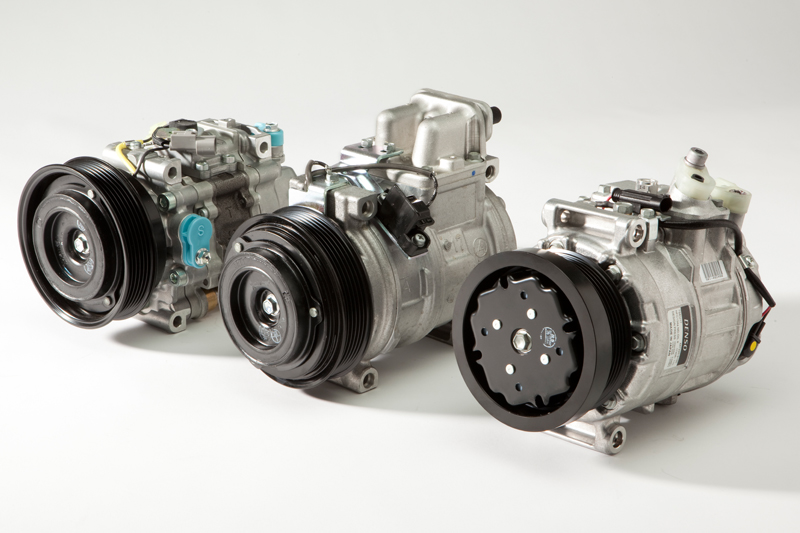
Nick Thomas, Product Manager at DENSO Sales UK & Ireland, explains that it is vital to choose the right oil for the job: “The difference between the two types of oil means that they do not mix, leading to poor lubrication, damaged seals and increased wear. Blending or mixing of different types of oil may also lead to the formation of paraffin. This can block the flow of the refrigerant and oil, leading to seizure of the compressor and system failure.”
In effect, this means that if the oil is diluted, the lubricant base layer decreases. This results in the piston rubbing against the cylinder bearing surface. If the oil is too thick, it is unable to ‘squeeze’ between the cylinder and the piston.
“The greatest problem mechanics see concerning compressors,” Nick claims, “is contamination by foreign oil or additives, such as the wrong one or too much UV dye; the refrigerant cycle must be flushed before new parts are installed. In cases where imitation refrigerants or severe contamination is present, flushing is no longer sufficient and the complete system must be replaced.”
When flushing the refrigerant cycle, Nick therefore advises the use of dedicated flushing equipment and says the correct type of refrigerant is essential. Making sure technicians follow these best practices will ensure the long lifecycles expected of OE- quality compressors, helping workshops avoid unnecessary invalid warranty claims and keep customers satisfied in the process.
Faster fix
To make the replacement process easier, Nick explains that mechanics can adopt the following practices:
- When tightening bolts and nuts, always use the correct tightening torque in accordance with the vehicle specifications.
- Only use the manufacturer-recommended compressor oil, as indicated on the identification label of the compressor.
- To keep dirt and moisture out of the system, cap the open fittings immediately when disconnecting hoses or other parts.
- When cleaning the refrigerant system, use appropriate flushing equipment.
- After installation, don’t forget to follow the recommended run-in procedure.
Opening opportunities
Compressors can provide excellent upselling opportunities for the summer, if garages are well-informed about the benefits of better and higher quality products for customers.
Nick explains: “The compressor is the heart of the air conditioning system, and without a fully-functioning compressor, the rest of the system won’t work. Similarly, providing higher quality compressors will lead to added efficiency and performance across the entire air conditioning system.”
Manufactured using lighter and stronger materials, high quality compressors can provide quieter and more efficient performance. Often using aluminium alloys instead of cheaper alternatives, OE quality compressors will give workshops an upselling opportunity that will bring a long-term benefit to customers, building trust and loyalty in the process.
OE manufacturers like DENSO, which has its compressors fitted into 25% of European cars as original equipment, will often support exact fits on replacement parts to make installation a swifter and more time-efficient process for workshops.

